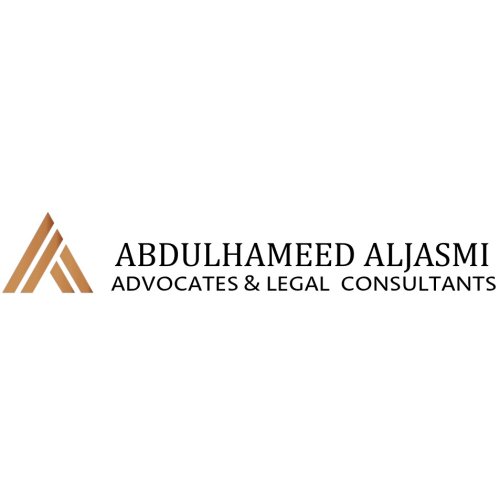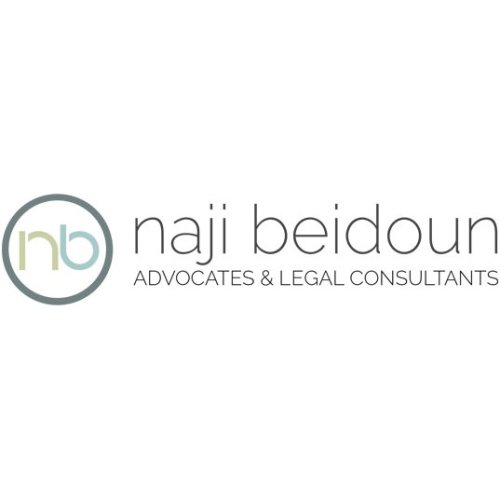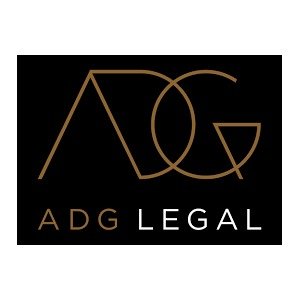Best Project Finance Lawyers in United Arab Emirates
Share your needs with us, get contacted by law firms.
Free. Takes 2 min.
Or refine your search by selecting a city:
List of the best lawyers in United Arab Emirates
About Project Finance Law in United Arab Emirates
Project finance in the United Arab Emirates is a widely used method for funding infrastructure and industrial projects, such as energy plants, transportation facilities, and real estate developments. This approach relies on raising capital based on the projected cash flows of a particular project rather than relying solely on the balance sheets of the sponsors. Project finance structures in the UAE often involve a mix of equity and debt, including both domestic and international lenders. The legal framework overseeing project finance considers aspects like risk allocation, collateral, special purpose vehicles (SPVs), and regulatory compliance. Given the UAE's ambition to foster investment and economic development, project finance is a key component in major initiatives across the region.
Why You May Need a Lawyer
Seeking legal advice in project finance is essential due to the complexity, scale, and multi-party nature of most projects. Here are some common scenarios where engaging a lawyer is beneficial:
- Structuring complex financing arrangements and ensuring compliance with UAE laws. - Drafting or negotiating project finance agreements, including loan agreements, security documents, and consortium agreements. - Establishing or managing SPVs and ensuring proper regulatory registrations. - Navigating cross-border transactions involving multiple legal jurisdictions. - Advising on government approvals, permits, and licenses. - Managing risk allocation among sponsors, lenders, contractors, and government entities. - Handling disputes between parties or with government authorities. - Supporting contract enforcement and protection of collateral.
Due to the substantial investments and potential risks involved, having a legal expert guide you through the process helps safeguard your interests and promotes the successful execution of your project.
Local Laws Overview
Project finance in the UAE is governed by a combination of federal laws, Emirate-level regulations, and free zone rules. Some of the key legal aspects include:
- The Companies Law (Federal Decree-Law No. 32 of 2021) regulates the formation and operation of companies, including SPVs used in project finance. - The UAE Civil Code prescribes principles on contract law, obligations, and rights. - Security interests are generally governed by the Federal Law on Mortgage of Movable and Immovable Property. - Islamic finance (Shariah-compliant) structures are prevalent and often integrated with conventional structures. - Various Emirate-level authorities, such as the Abu Dhabi Department of Energy or Dubai Electricity and Water Authority, may impose additional sector-specific regulations. - Free zones like Dubai International Financial Centre (DIFC) and Abu Dhabi Global Market (ADGM) have their own regulatory frameworks that often align more closely with international standards. - Foreign investment and public-private partnership (PPP) laws may impact the structuring of certain projects.
Understanding the intersections between these different laws and regulations ensures compliance and mitigates risks throughout the lifespan of a project.
Frequently Asked Questions
What is project finance and how does it work in the UAE?
Project finance is a funding structure where the repayment depends primarily on the project's cash flows, with assets and rights usually held by a special purpose vehicle. In the UAE, it is commonly used for large-scale infrastructure, energy, and industrial projects, and involves lenders, sponsors, and other stakeholders entering into detailed contractual arrangements.
What types of projects are typically financed using project finance in the UAE?
Major energy projects, transportation infrastructure (such as airports and ports), water and waste management facilities, and large property developments are often financed through project finance structures in the UAE.
Can foreign investors participate in project finance in the UAE?
Yes, foreign investors can participate, subject to local laws on ownership and investment. Many free zones and recent legislative changes now allow for significant or full foreign ownership, making the UAE an attractive market for international project finance.
What legal entities are commonly used in project finance deals?
Special Purpose Vehicles (SPVs), limited liability companies, and joint ventures are commonly established to ring-fence the assets, contracts, and obligations relevant to each project.
Is Islamic (Shariah-compliant) project finance available in the UAE?
Yes, the UAE is a major hub for Islamic finance. Shariah-compliant project finance solutions, such as ijara, murabaha, and musharaka arrangements, are widely used either alone or in combination with conventional finance.
What are the key risks in project finance structures?
Major risks include construction delays, cost overruns, regulatory changes, revenue shortfalls, currency fluctuations, and changes in economic or political environments. Legal advice helps identify, allocate, and manage these risks in project contracts.
Are government guarantees available for project finance projects?
In some infrastructure sectors, government entities may provide guarantees, support agreements, or other credit enhancements. However, this depends on government policy, sector, and the specific nature of the project.
What approvals and licenses are required for project finance transactions?
Projects usually require various permits and licenses from federal, Emirate-level, and sector-specific authorities. This may include environmental clearances, construction permits, and operational licenses, depending on the project type.
How are disputes typically resolved in project finance deals?
Parties often choose arbitration, sometimes with an international seat like the DIFC-LCIA or ICC, although UAE courts may have jurisdiction depending on the contractual agreement and location of the project assets.
How can a legal professional assist during the lifecycle of a project?
A legal professional advises on structuring the deal, negotiating contracts, securing approvals, ensuring compliance, managing ongoing obligations, and resolving disputes, providing crucial support at every stage of the project.
Additional Resources
If you need more information or direct support, consider reaching out to the following organizations and authorities:
- The UAE Ministry of Economy - Department of Economic Development (DED) in each Emirate - Dubai International Financial Centre (DIFC) Authority - Abu Dhabi Global Market (ADGM) Authority - Emirates Development Bank - Dubai Electricity and Water Authority (DEWA) - Abu Dhabi Department of Energy - Local Chambers of Commerce and Industry - Regulatory agencies for specific sectors, such as Energy, Transportation, and Real Estate
Next Steps
If you are considering or already involved in a project finance transaction in the UAE, here are the suggested next steps:
- Conduct preliminary research on your planned project and identify relevant regulations. - Engage a law firm or legal expert specializing in project finance in the UAE to advise on structuring and compliance. - Prepare documentation and due diligence required for establishing SPVs, securing finance, and regulatory approvals. - Work with your legal counsel to draft and negotiate all necessary agreements, ensuring clarity over risk allocation, security, and repayment terms. - Maintain regular communication with relevant governmental and regulatory bodies throughout the project's duration. - Should disputes or issues arise, promptly consult your legal advisor to determine the appropriate legal remedies or dispute resolution mechanisms.
Taking a proactive and informed approach with the support of experienced legal professionals will enhance the prospects of your project finance transaction's success in the United Arab Emirates.
Lawzana helps you find the best lawyers and law firms in United Arab Emirates through a curated and pre-screened list of qualified legal professionals. Our platform offers rankings and detailed profiles of attorneys and law firms, allowing you to compare based on practice areas, including Project Finance, experience, and client feedback.
Each profile includes a description of the firm's areas of practice, client reviews, team members and partners, year of establishment, spoken languages, office locations, contact information, social media presence, and any published articles or resources. Most firms on our platform speak English and are experienced in both local and international legal matters.
Get a quote from top-rated law firms in United Arab Emirates — quickly, securely, and without unnecessary hassle.
Disclaimer:
The information provided on this page is for general informational purposes only and does not constitute legal advice. While we strive to ensure the accuracy and relevance of the content, legal information may change over time, and interpretations of the law can vary. You should always consult with a qualified legal professional for advice specific to your situation.
We disclaim all liability for actions taken or not taken based on the content of this page. If you believe any information is incorrect or outdated, please contact us, and we will review and update it where appropriate.
Browse project finance law firms by city in United Arab Emirates
Refine your search by selecting a city.

















